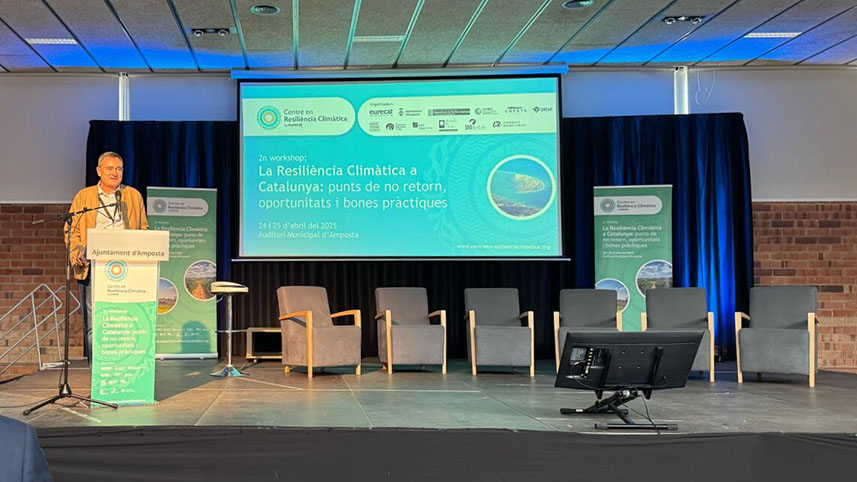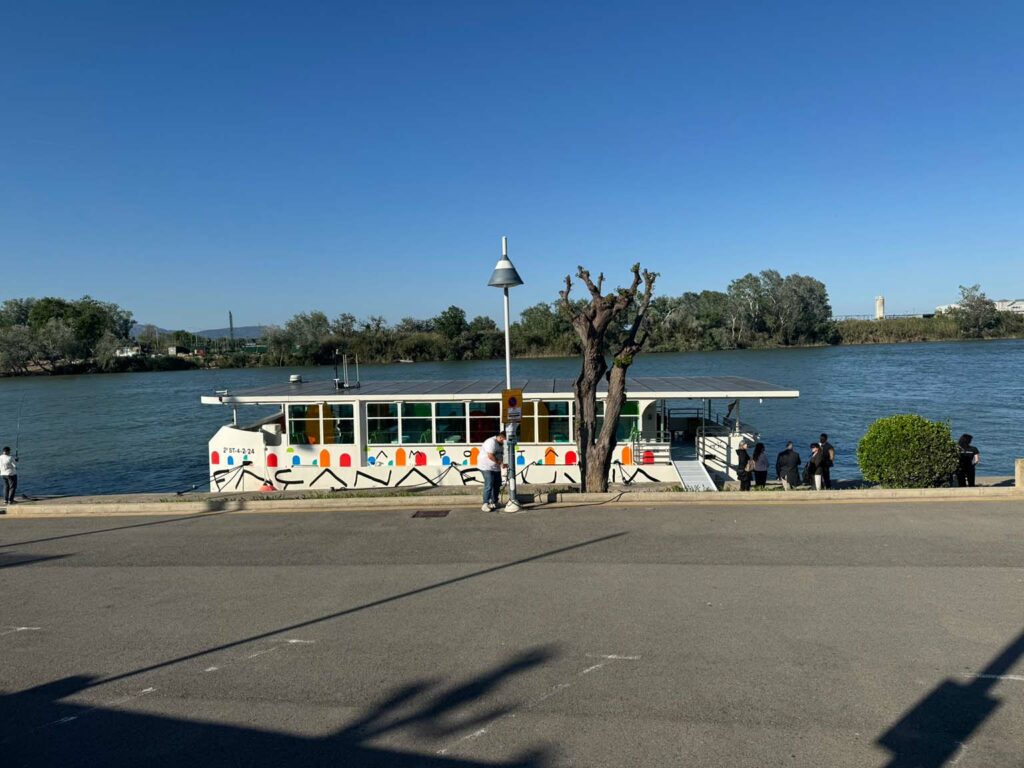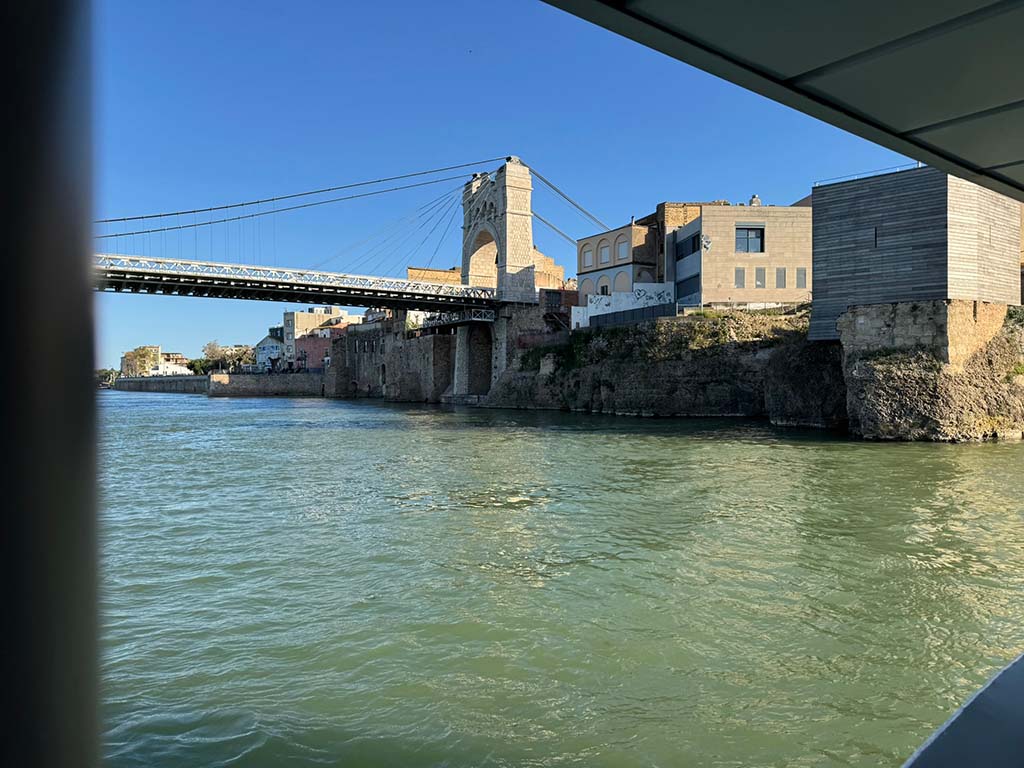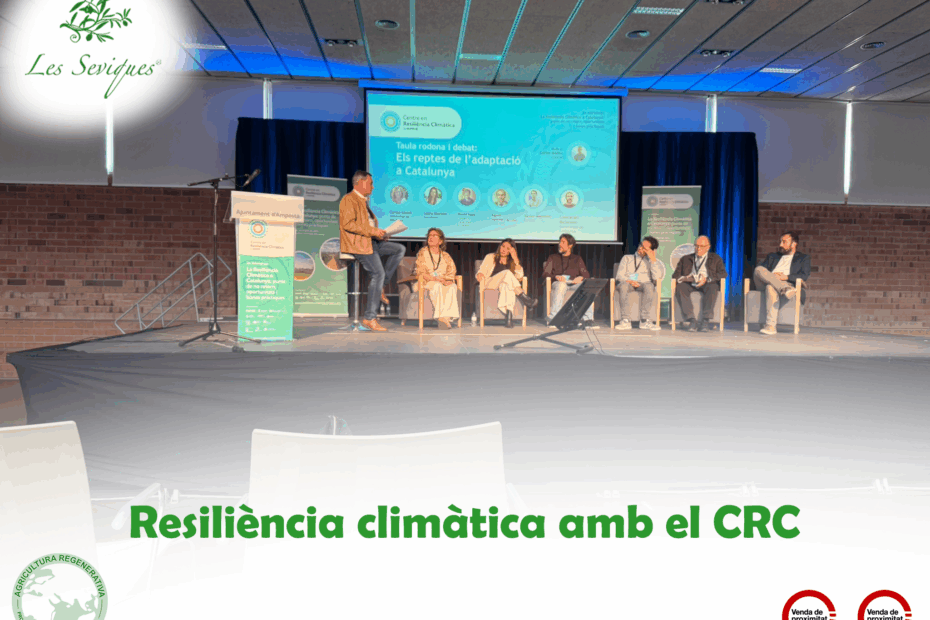On April 24th and 25th we had the opportunity to participate in the 2nd Workshop of the Center for Climate Resilience (CRC), held at the Amposta Municipal Auditorium under the title "Climate Resilience in Catalonia: points of no return, opportunities, good practices". More than 200 people came together in this space for exchange, reflection and collaboration around a central and urgent issue: how to deal with climate change from science, society and the territory.
Day 1: Science and technology in action
The first day brought together around twenty expert voices from research centers, universities, public agencies and foundations, who shared tools, methodologies and scientific knowledge to address the challenges of climate adaptation in Catalonia.
After the institutional welcome by Daniel Altimiras (Eurecat) and Núria Marco (Amposta City Council), we listened to the inaugural lecture by Carme Llasat, professor of Atmospheric Physics, who offered us a clear and compelling look at how climate risks have evolved since the Paris Agreement.

The day continued with two round tables, one on the challenges of mitigation and the other on adaptation to climate impacts, where emphasis was placed on the need for multidisciplinary and inter-institutional dialogue to advance real and efficient solutions.
Innovative initiatives were also presented such as the Comprehensive Energy and Climate Plan of Catalonia, the coastal information service and the commitment to space technologies through the Phi-LabNET project of the European Space Agency.
In the evening, we experienced a very special moment with an electric boat trip down the Ebro River aboard “La Perla”, where we learned first-hand about the river tourism project, the recovery of historical heritage and the interpretation of natural heritage. And as a cultural and emotional climax to the day, the Terres de l'Ebre jotes group offered us a performance full of roots, feeling and commitment to the land. A memory that will be etched in the memory of all those present.



Day 2: Society, administration and business in the face of climate change
The second day focused on the key role of the administration, businesses and civil society in the ecological transition. After the welcome by the mayor of Amposta, Adam Tomàs, and representatives of Eurecat and the Generalitat, the strategic axes of the Catalan government for the ecological transition were presented, as well as several business cases that are already applying measures for climate resilience.
We were pleasantly surprised by the participation of diverse sectors, from energy (Naturgy) and industry (Ciments Molins) to food (Borges), the pharmaceutical sector (Ferrer) and even Futbol Club Barcelona, showing how the fight against climate change can (and must) be transversal.
The final interventions, such as Miquel Rovira's on defossilization or Marc Domingo's on voluntary compensation programs, put on the table new opportunities to move towards a cleaner, more resilient and collaborative model.

The Workshop made one thing clear: Terres de l'Ebre is and must continue to be a leading territory in the application of transformative climate policies. This was highlighted by Juanjo Martín and Carles Ibáñez (Eurecat), insisting that the objective of the CRC is to actively contribute to the Catalan, Spanish and European Strategy for Adaptation to Climate Change, while aligning itself with the objectives of the 2030 Agenda and the European Green Deal.
At Les Seviques, we feel grateful to have been able to be part of this space of knowledge and action. We will continue to bet on regenerative agriculture and practices aligned with climate resilience, convinced that change begins in the territory and with the people who work there every day.
